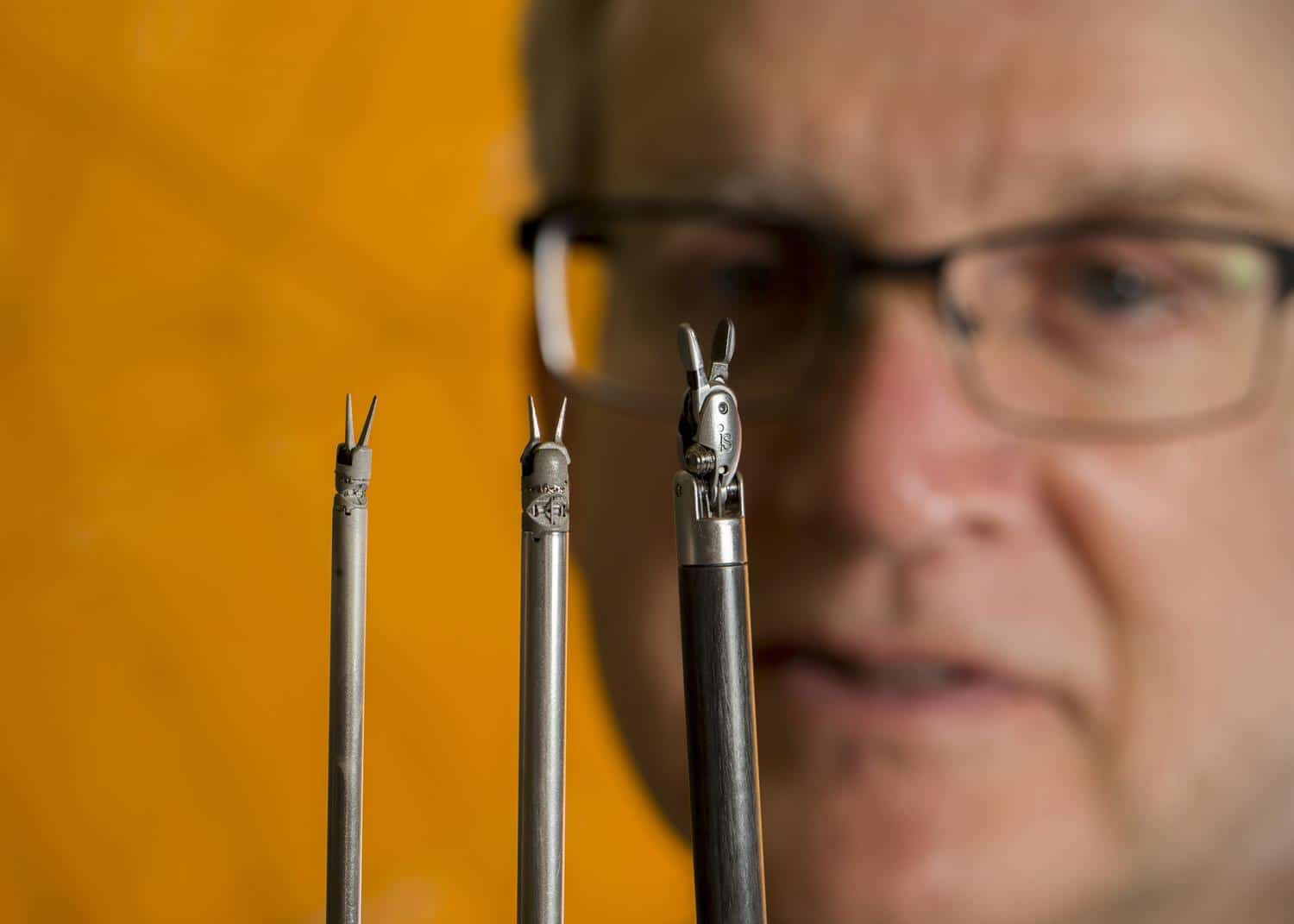United States (Provo)
Did you know that origami isn’t just useful for creating swans or cranes – or folding solar arrays for launch into space? It’s also making cutting edge mini tools to make medicine less invasive.
A team of mechanical engineering professors from Brigham Young University have been applying its principles to bioengineering, designing surgical technology that could produce instruments so small that incisions can heal on their own without sutures. One example is the D-Core, a device that starts out flat and then expands to become two rounded surfaces that roll on each other, mimicking spinal discs. Another is a 3D printed robotically-controlled forceps which can pass through a hole as small as three millimetres, opening up new possibilities.
“The origami-inspired ideas really help us to see how to make things smaller and smaller and to make them simpler and simpler,” professor Spencer Magleby explained and then compared it to the work they’ve done for NASA: “Those who design spacecraft want their products to be small and compact because space is at a premium on a spacecraft, but once you get in space, they want those same products to be large, such as solar arrays or antennas. There’s a similar idea here. We’d like something to get quite small to go through the incision, but once it’s inside, we’d like it to get much larger.”
Though death rates from complications of surgery have declined in recent years, the idea of shrinking tools to make surgery less invasive is a good one. The tools have been licensed to Intuitive Surgical, the world leader in robotic surgery, who hope to make these surgical procedures as safe as possible so that one day they can manipulate things as small as nerves.
Watch how the ancient Japanese art of paper folding inspires the tiny medical devices:
Project leader
Larry Howell, Spencer Magleby and Brian Jensen
Support the Atlas
We want the Atlas of the Future media platform and our event to be available to everybody, everywhere for free – always. Fancy helping us spread stories of hope and optimism to create a better tomorrow? For those able, we'd be grateful for any donation.
- Please support the Atlas here
- Thank you!

Photos: Mark Philbrick/Brigham Young University

